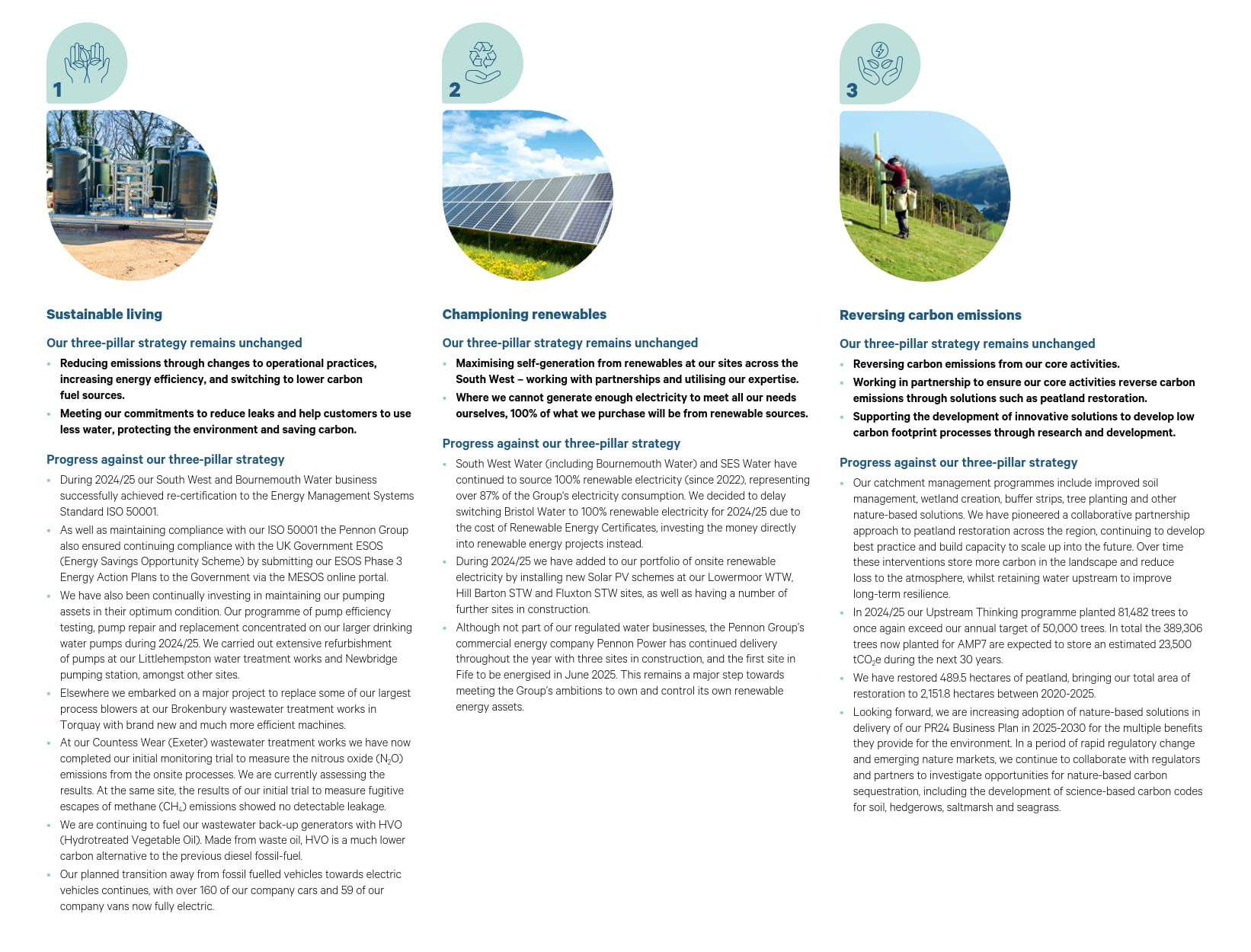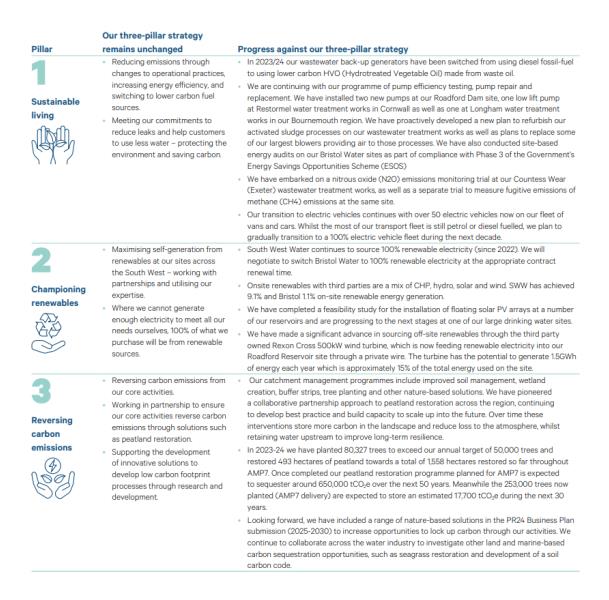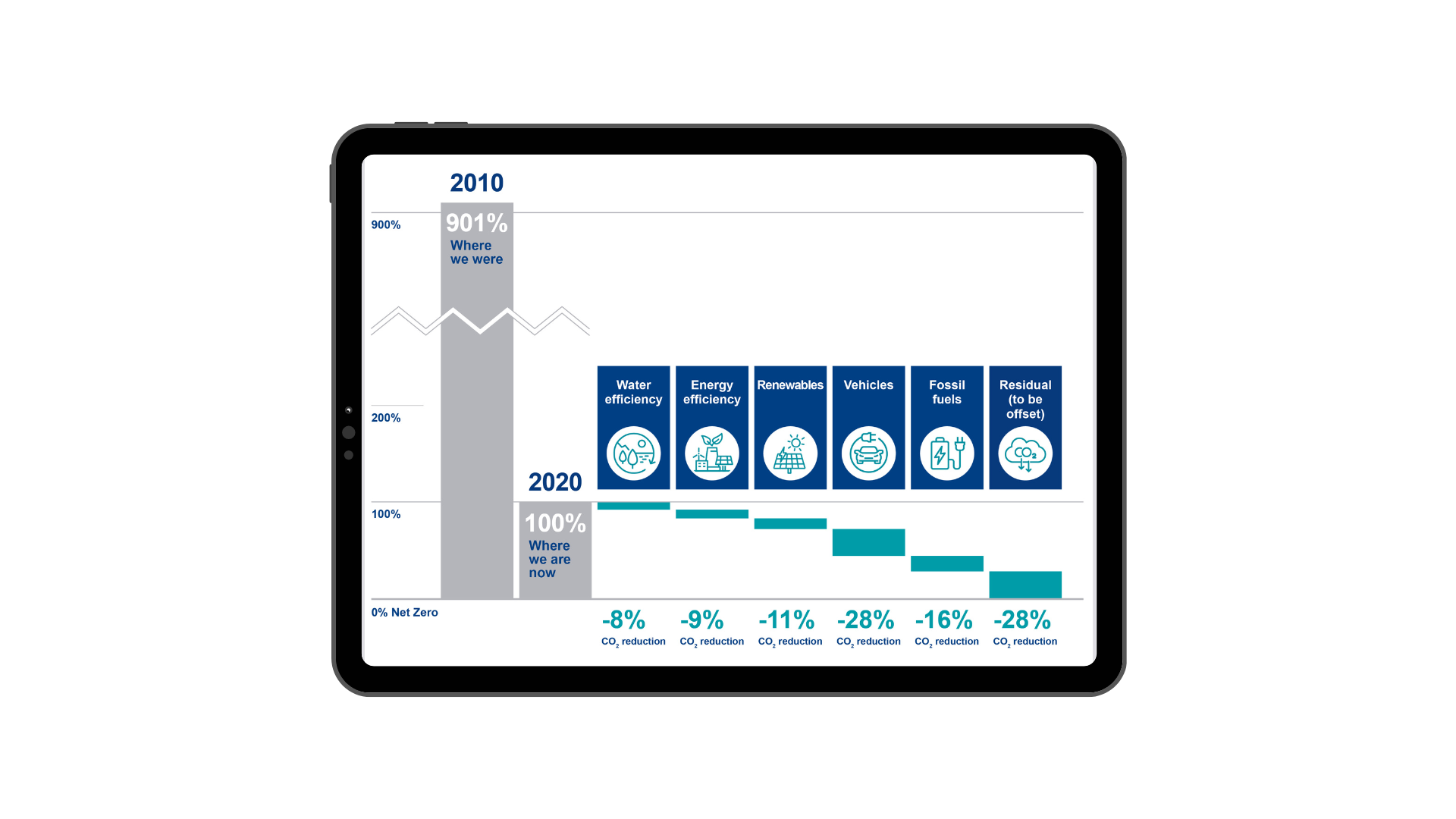In 2021, we published our Promise to the Planet – our ambitious plan to reduce our operational carbon emissions to Net Zero by 2030. During 2024/25 we have continued to make progress towards our goal of decarbonising our operational activities.
Our Net Zero strategy is driven by three pillars; Sustainable living, Championing renewables, and Reversing carbon emissions.

As a Group we have committed to near-term Science Based Targets (SBTs). Our targets were validated and approved by the Science Based Targets Initiative in May 2024 and we will now focus on delivering our targets. SBTs provide a clearly defined pathway for companies to reduce greenhouse gas emissions. Targets are considered ‘science-based’ if they are in line with what the latest climate science deems necessary to meet the goals of the Paris Agreement – limiting global warming to 1.5°C above pre-industrial levels. Our SBTs, presented below, support our water and wastewater greenhouse gas, and embodied carbon bespoke performance commitments.
- The Group commits to reduce absolute scope 1 and scope 2 GHG emissions 68% by 2032/33 from a 2021/22 base year.
- The Group commits to reduce absolute Scope 3 GHG emissions from 'well to tank' electricity and fuels, the delivery of electricity, emissions from waste, and business travel and commuting, by 30% over the same timeframe.
- The Group commits that 60% of its suppliers by emissions covering purchased goods and services, capital goods and upstream transportation and distribution will have science-based targets by FY2027/28.
- The Group commits to increase annual sourcing of renewable electricity to 100% by 2030.

Each of our regulated water businesses have published their Net Zero 2030 plans on their company websites.
For more details of our progress towards Net Zero, please see our Annual Report and Accounts 2024/25
GHG Emissions
Our greenhouse gas (GHG) emissions are reported in our Annual Report with further details including Scope 3 GHG emissions breakdown in our ESG Databook
South West Water, Bristol Water and SES Water are active members of trade organisation Water UK which we engage with collaboratively to help tackle climate-related issues including the development of the industry Net Zero 2030 routemap. Additionally, our teams are engaged in UKWIR’s water industry research programme including projects towards UKWIR’s big question: How Do We Remove More Carbon Than We Emit By 2050?
Carbon in decision-making and internal carbon price
We use carbon pricing within our plans and decision making. For K8, we are carrying out whole life assessments for capital projects using a carbon cost of £294/tCO2e, and are working with our Amplify supply chain partners to embed this value. The carbon cost adopted aligns to the 2030 carbon values published by the Department for Energy Security and Net Zero (DESNZ), in the Treasury’s Green Book.



